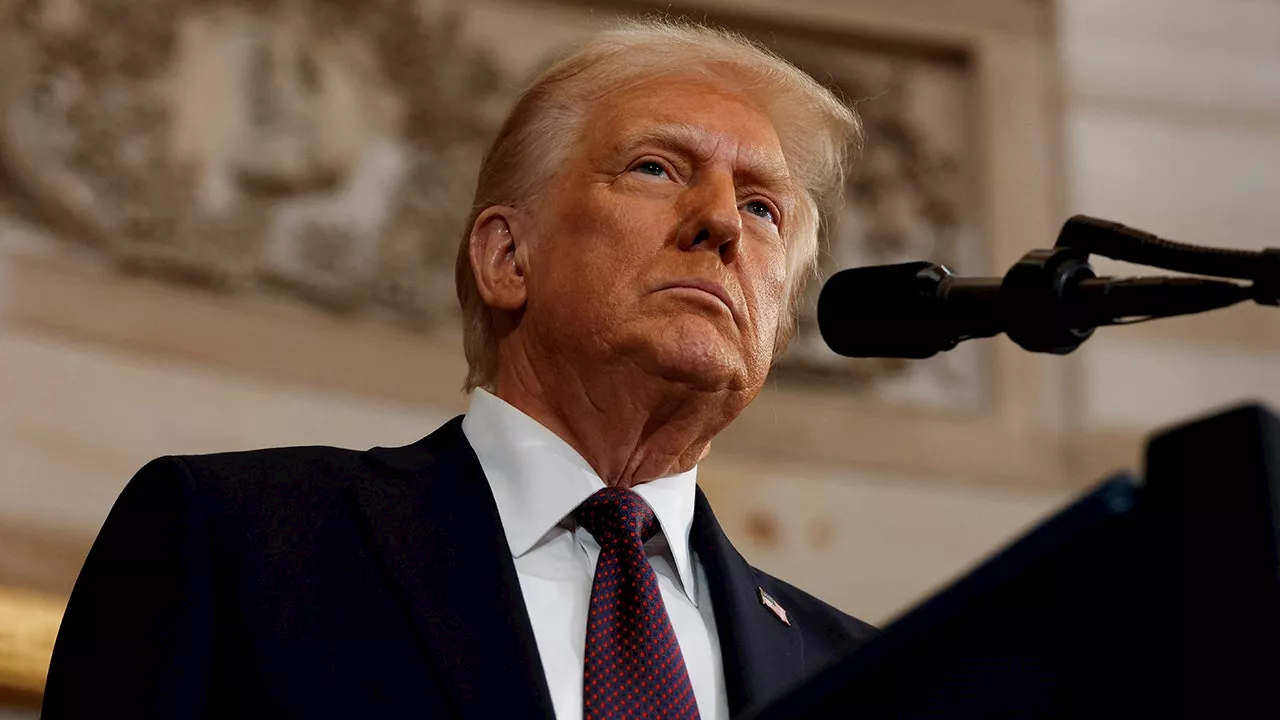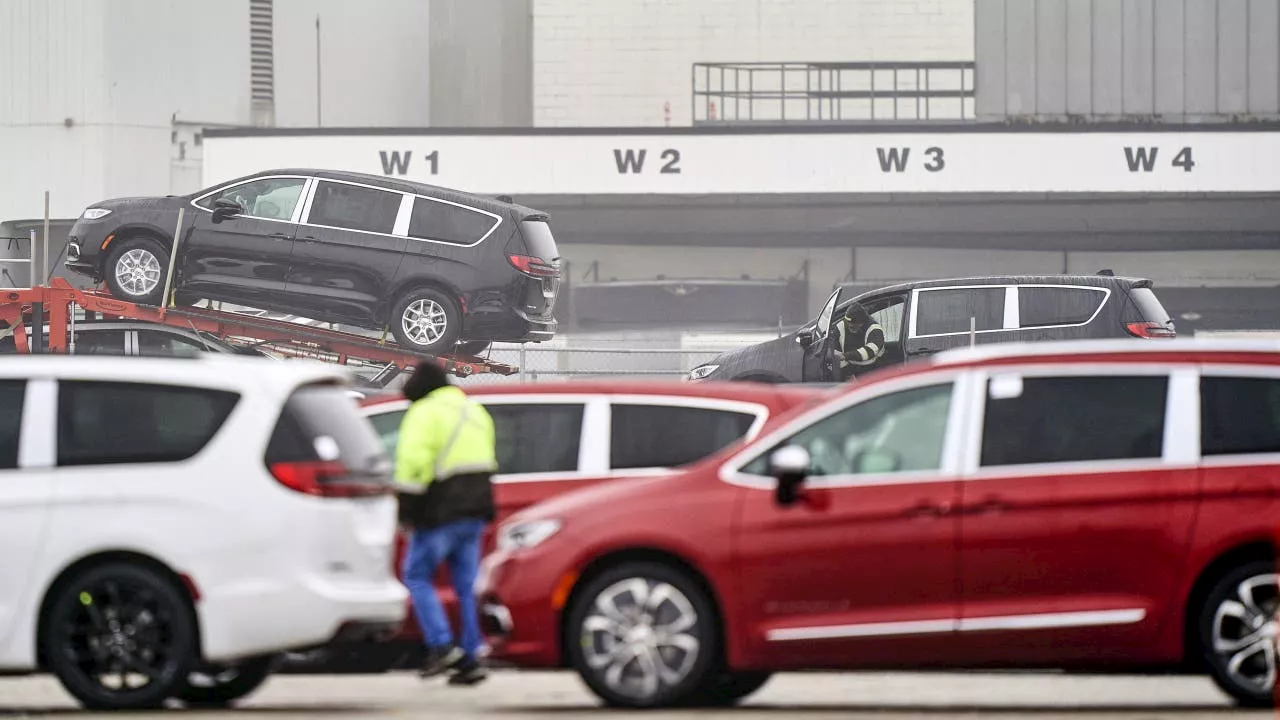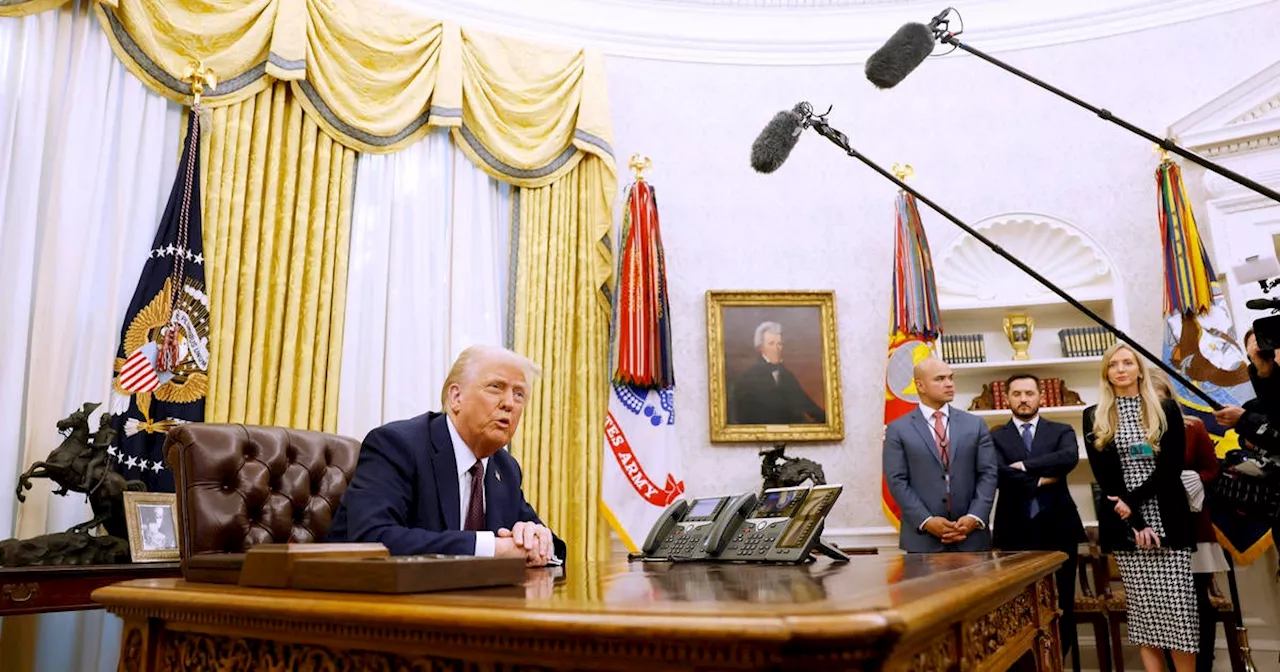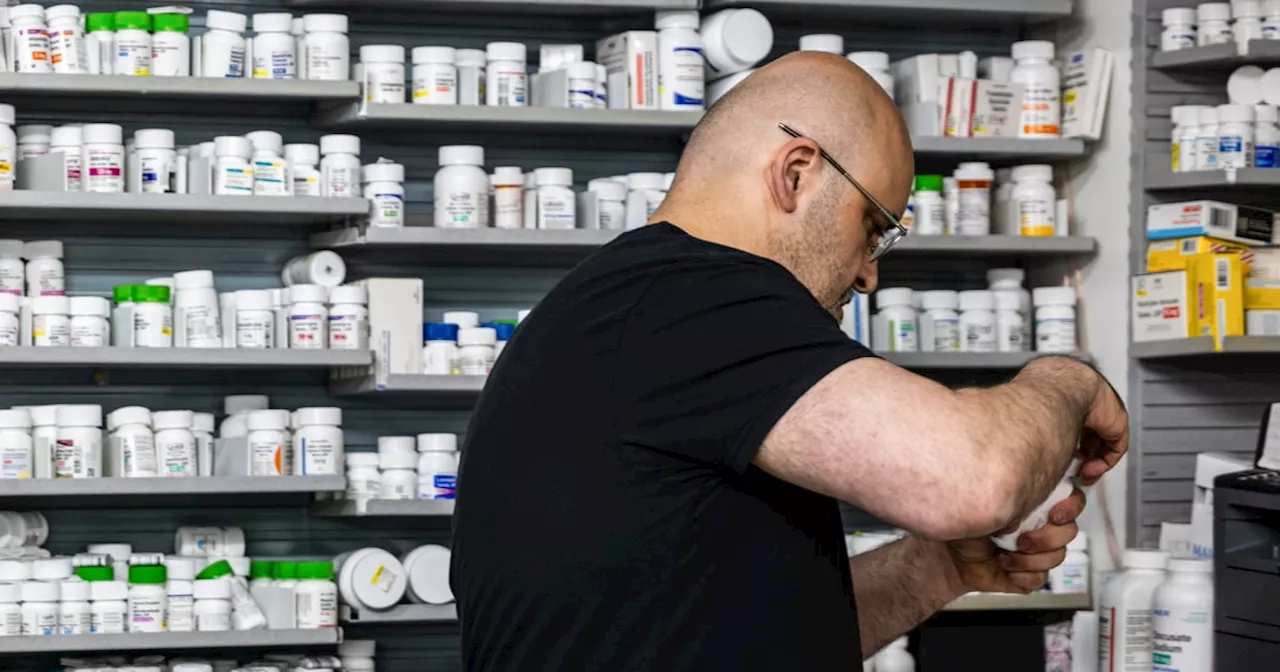President Trump's 10% tariff on Chinese imports is predicted to significantly impact the US pharmaceutical market, leading to higher prices and potential shortages of generic drugs. Experts warn that the reliance on overseas manufacturing for generic medications, coupled with the tariffs, could disrupt the supply chain and disproportionately affect vulnerable communities.
President Donald Trump's executive order imposing a 10% tariff on Chinese imports is likely to drive up the cost of generic drugs in the United States and exacerbate drug shortages, experts say. About half of generic drugs people take in the U.S. — including cancer drugs, antibiotics, and blood thinners — are made entirely overseas, where manufacturing is cheaper, said Dr. Aaron Kesselheim, a professor of medicine at Harvard Medical School whose research focuses on prescription drugs.
An even greater share of the active pharmaceutical ingredients, or APIs, used in drugs comes from abroad: around 80%, he said. China is increasingly playing a role in making these ingredients, according to data shared by United States Pharmacopeia, a nonprofit group that focuses on the safety of the drug supply chain. In 2023, China had about 219 API facilities, up from 134 in 2021, according to the group. India remains the largest global producer of APIs, with about half of all facilities. Generic drugs account for about 90% of all prescriptions filled, according to the Association for Accessible Medicines, a trade group that represents generic drugmakers. Unlike brand-name drugs, generics are sold at low prices, often close to the cost they were made, meaning any disruptions, like tariffs, can lead to shortages and force companies to pass on the cost to consumers, Kesselheim said. While shortages are likely to be immediate, “I would expect prices will increase in the next few months,” he said. “When generic drugs are sold through distributors and through the supply chain, there’s usually a contract,” he said. “It might take a few months before some of those contracts turn over and we get newer contracts with higher prices.” Vimala Raghavendran, vice president of informatics product development at the U.S. Pharmacopeia, said that typically, companies hold several months of inventory of API. “Thus the effects of any policy changes may take a while to trickle through the supply chain,” she said. In a statement, John Murphy III, president and CEO of the Association for Accessible Medicines, called on the Trump administration to provide an exemption. “From the base ingredients to the finished products, U.S. medicines rely on a global supply chain that is already stressed and in need of strengthening,” he said. “Generic manufacturers simply can’t absorb new costs.” The White House did not immediately respond to a request for comment. Rena Conti, an associate professor at Boston University’s Questrom School of Business, said there are protections in place that may help prevent higher prices from directly hitting consumers. That includes state anti-price gouging laws and a Biden-era tax on drugmakers that raise the prices of their drugs faster than inflation. “So if any manufacturer wants to go ahead and increase their prices, they’re going to pay a different tax on the other end if they do so,” she said. In the near term, Conti said, she’s concerned about hospitals and pharmacists stockpiling drugs to avoid paying a higher cost — something that could exacerbate disparities in the U.S. She said she has already heard about pharmacies going through their drug lists to see which products might be vulnerable to tariffs. “Better resourced hospitals and pharmacies have enough money or wherewithal to call their wholesaler to see if they can buy more of certain types of products,” she said. “Mom-and-pop pharmacies or small hospitals, rural hospitals that don’t actually buy a lot of drugs to begin with, they’re going to have difficulty getting things if they’re panic-buying.” Arthur Caplan, head of the division of medical ethics at NYU Langone Medical Center in New York City, said it’s unlikely that the tariffs will spur production in the U.S. as generic drugs aren’t a lucrative enough business for companies to invest in the cost of building new manufacturing facilities. Trump’s tariffs, he said, also mean that the U.S. can’t rely on its neighbors — Mexico and Canada — to help mitigate the issue. On Saturday, Trump imposed 25% tariffs on the bordering countries. The tariffs on Mexico have been delayed a month after the countries reached an agreement. “It will take months but drug prices will increase,” Caplan said
TARIFFS GENERIC DRUGS DRUG PRICES SHORTAGES CHINA UNITED STATES PHARMACEUTICAL INDUSTRY
United States Latest News, United States Headlines
Similar News:You can also read news stories similar to this one that we have collected from other news sources.
 Trump plans 10% tariffs on Chinese imports on Feb. 1President Donald Trump says he will soon implement a 10% tariff on Chinese imports over the role the country plays in fentanyl trafficking into the U.S.
Trump plans 10% tariffs on Chinese imports on Feb. 1President Donald Trump says he will soon implement a 10% tariff on Chinese imports over the role the country plays in fentanyl trafficking into the U.S.
Read more »
 Trump to Impose Tariffs on Chinese Imports, Impacting Tech CompaniesPresident Donald Trump plans to impose a 10% tariff on Chinese imports, affecting various tech companies, including those beyond Apple. The tariffs, aimed at curbing the flow of illegal fentanyl from China, will take effect on February 1st.
Trump to Impose Tariffs on Chinese Imports, Impacting Tech CompaniesPresident Donald Trump plans to impose a 10% tariff on Chinese imports, affecting various tech companies, including those beyond Apple. The tariffs, aimed at curbing the flow of illegal fentanyl from China, will take effect on February 1st.
Read more »
 Trump to Implement Tariffs on Canadian, Mexican, and Chinese Imports, Potentially Impacting PricesPresident Donald Trump is set to impose tariffs on imports from Canada, Mexico, and China starting Saturday, potentially driving up prices for a wide range of goods. The move carries both political and economic risks for the president, who is just two weeks into his second term.
Trump to Implement Tariffs on Canadian, Mexican, and Chinese Imports, Potentially Impacting PricesPresident Donald Trump is set to impose tariffs on imports from Canada, Mexico, and China starting Saturday, potentially driving up prices for a wide range of goods. The move carries both political and economic risks for the president, who is just two weeks into his second term.
Read more »
 China Criticizes Trump's Tariffs on Chinese Imports as 'Serious Violation' of Trade RulesChina has condemned President Donald Trump's decision to impose a 10 percent tariff on all Chinese imports, calling it a 'serious violation' of international trade rules. Beijing has vowed to retaliate with unspecified countermeasures while challenging the tariffs at the World Trade Organization (WTO).
China Criticizes Trump's Tariffs on Chinese Imports as 'Serious Violation' of Trade RulesChina has condemned President Donald Trump's decision to impose a 10 percent tariff on all Chinese imports, calling it a 'serious violation' of international trade rules. Beijing has vowed to retaliate with unspecified countermeasures while challenging the tariffs at the World Trade Organization (WTO).
Read more »
 Trump tariffs: What do Trump’s executive orders say on tariffs and how would they work?President Donald Trump is using a trio of executive orders to throw the world economy and his own goal of cutting inflation into turmoil.
Trump tariffs: What do Trump’s executive orders say on tariffs and how would they work?President Donald Trump is using a trio of executive orders to throw the world economy and his own goal of cutting inflation into turmoil.
Read more »
 Trump to Impose Tariffs on Oil, Gas, and MorePresident Trump announced plans to impose tariffs on a range of imports, including oil, gas, CHIPS semiconductor technology, pharmaceuticals, steel, aluminum, and copper. The tariffs on oil and gas imports are expected to take effect around February 18th, while tariffs on other goods will be implemented eventually. This move follows the implementation of 25% tariffs on imports from Mexico and Canada. Trump stated that negotiations were over and these tariffs would be added to existing ones, potentially leading to increased prices for consumers.
Trump to Impose Tariffs on Oil, Gas, and MorePresident Trump announced plans to impose tariffs on a range of imports, including oil, gas, CHIPS semiconductor technology, pharmaceuticals, steel, aluminum, and copper. The tariffs on oil and gas imports are expected to take effect around February 18th, while tariffs on other goods will be implemented eventually. This move follows the implementation of 25% tariffs on imports from Mexico and Canada. Trump stated that negotiations were over and these tariffs would be added to existing ones, potentially leading to increased prices for consumers.
Read more »
